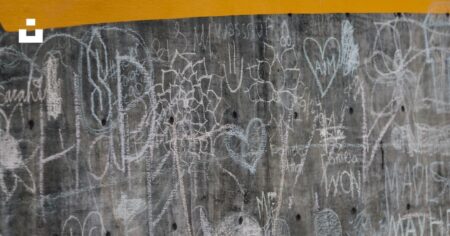ABHMS’ Pierce grant supports a new church-based legal clinic for low-income immigrant farmworkers and their families in Cooperstown, N.Y.

Photo by Katie Moum on Unsplash.
VALLEY FORGE, PA (12/08/2023)—June 2021 was a month that saw record numbers of people from Central America, many of them asylum seekers, crossing the U.S.-Mexico border. Children who arrived without guardians stayed packed in Border Patrol cells for weeks, sleeping on gym mats and foil sheets. The horrific conditions in which people were crammed, awaiting decisions, caused nationwide outrage. After being processed, people were gradually relocated across the country, many of them to New York state.
In Cooperstown, N.Y., the county seat of a rural county in central New York, two churches were worshipping together as the pandemic lingered on: First Baptist and First Presbyterian. The new interim minister called to serve at First Presbyterian was the recently ordained Rev. Faith Gay, a prominent New York-based attorney who specializes, among others, in immigration cases. She quickly realized that there was a need for legal assistance to immigrants in the Mohawk Valley area where Cooperstown is based.
To address this, she connected with Beth Lyon, a professor of law at Cornell Law School who had founded the Farmworker Legal Assistance Clinic. Handling individual deportation defense cases for child and youth farmworkers has been one of the clinic’s priorities.
In collaboration with Cynthia Falk, a lay ministry leader at First Baptist, they hatched a plan to extend the work of the clinic to the Mohawk Valley area, which is rural and lacks many services that upstate New York urban centers of Buffalo, Syracuse, Albany, and even Ithaca offer.
To do that, they had to intensely fundraise to hire an attorney to come and work out of a Cooperstown office. A $15,000 grant from the American Baptist Home Mission Societies through the Louise Burchard Pierce Memorial Fund contributed to the effort.
Lyon explained that both churches were uniquely placed to partner with Cornell to serve the Mohawk Valley area immigrant community: “as the nation reexamines immigration policies at the southern border, communities living near America’s northern border, including those in central and upstate New York, continue to pay the price for our predatory migration regime. With their longstanding community ties and location in an underserved area, the First Presbyterian and First Baptist churches of Cooperstown are ideal partners to leverage the Law School’s experience partnering with low-wage immigrant communities to provide priority legal services.”
The First Baptist Church of Cooperstown is an American Baptist congregation with a long history of service, both domestically and abroad. During the COVID-19 pandemic, the church offered educational activities to local kids. It now houses a number of community groups and a clothing shed where usable clothing and home textiles are gathered and shared. Under the leadership of Rev. Mike Coles, it also runs an anti-racist education project for the area’s youth, funded by another grant from the American Baptist Home Mission Societies.
For a year now, it has hosted the legal clinic, overseen by Reina Fostyk, out of its facility. The project has so far provided family and immigration-related legal services to 20 low-income immigrant farmworkers, families, and youth. “The legal fellow created a list of services for people who needed them, particularly people who were farmworkers, but not exclusively. Working with Cornell, she used a niche legal strategy to assist minors who are in the United States without one or both of their parents,” said Falk. “Not through immigration courts, but through the county court system, to establish status here in the United States that would halt, at least temporarily, any deportation procedures.” One of the beneficiaries of the strategy was a single mother from Guatemala who needed help with getting her two children on a path to obtaining permanent residence and, ultimately, citizenship in the United States. Having become a mother at age 14, she escaped her abusive husband in Guatemala and found her way to a farm in upstate New York. She was referred to the clinic through a local partner. The Cornell University law students and legal fellows were able to work with her to provide her with the legal support they needed to establish a basis to obtain visas for the children and secure their future.
According to Falk, First Baptist’s involvement in the project is driven by the love of the neighbor and a deep commitment to community ministry. “The legal part of it is an important part, but more broadly, just being aware of people who are part of our community, broadly defined, she says. “Those who normally go under the radar. They don’t come to our Sunday worship service. They’re not begging on the streets, you know, but they’re existing in this often-unseen liminal area. And we can help to show them God’s love in this new place that probably still seems kind of foreign and unwelcoming in a lot of cases.”

